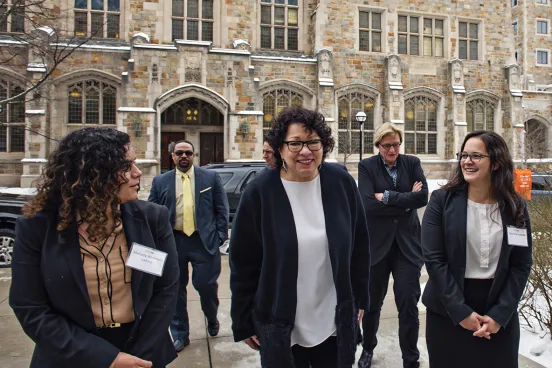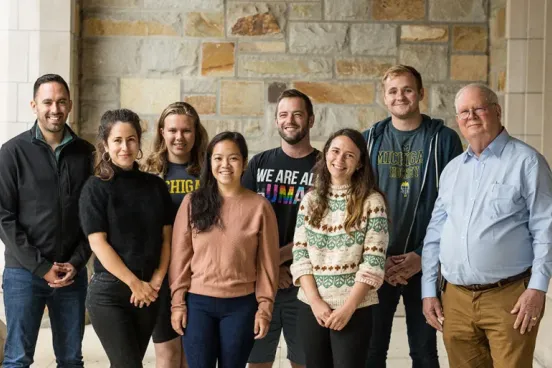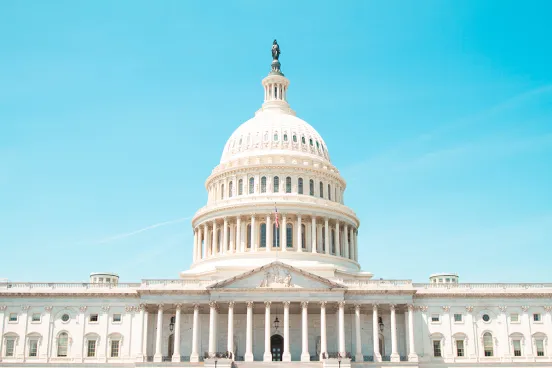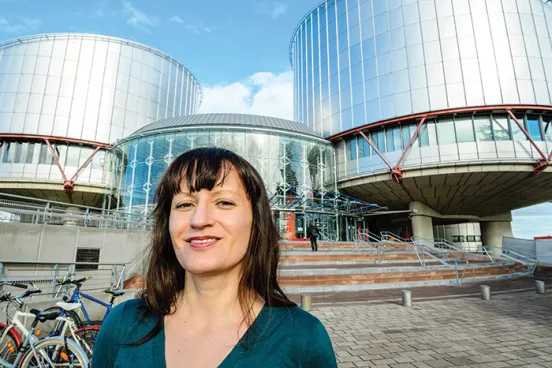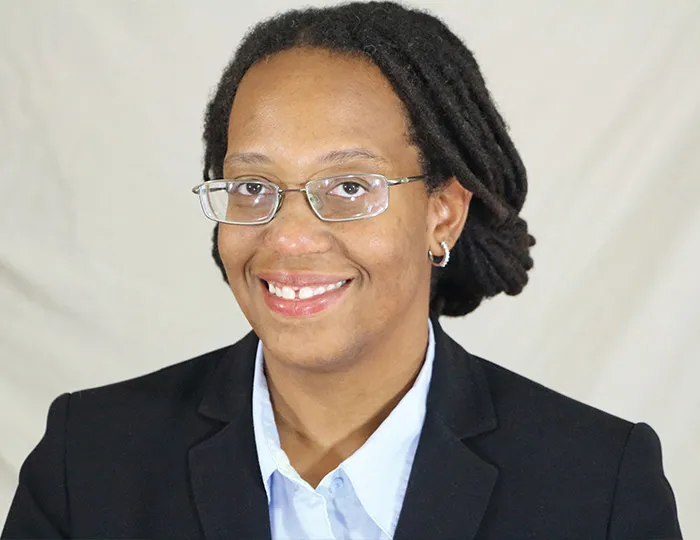
When the marriage equality movement started gaining momentum, Kerene Moore, ’05, saw an opportunity to help the LGBT community understand its rights, and to access them. It’s why she helped to create the LGBT Rights Project at the Jim Toy Community Center in Washtenaw County.
The LGBT Rights Project is a collaboration between Legal Services of South Central Michigan, where Moore is a supervising attorney, and Outlaws, a student organization that serves the needs of the lesbian, gay, bisexual, and transgender community at Michigan Law. Since 2015, when the U.S. Supreme Court ruled in favor of marriage equality in Obergefell v. Hodges, the project has been assisting clients with legal matters related to custody, divorce, adoptions, name changes, public benefits, expungement, and more.
“Part of the reason we established the LGBT Rights Project is to provide a free place, with open doors, where individuals can ask legal questions in a welcoming environment and get an informed response,” says Moore. “I’ve found that although we think people understand their rights, they really have no idea how laws directly impact their lives. Whether it’s understanding tax implications or figuring out how best to protect a parentchild relationship, we want to help people work through those options. More importantly, we want to take the papers to the courthouse and say, ‘This person would like to take advantage of his or her rights.’ That’s a big part of who I am—helping people access the courthouse and bringing about change for them on the ground level.”
For her efforts on behalf of the LGBT community, Moore was named a 2016 Best LGBT Lawyer Under 40 by the National LGBT Bar Association last August. It’s an honor that is particularly meaningful for Moore, who notes that it recognizes “those who are working behind the scenes, making a direct impact on LGBT people every day.”
A double Wolverine who earned her bachelor’s degree in psychology in 2002, Moore originally considered a dual degree in law and social work. But she realized her strengths are “working through regulatory details and finding loopholes.”
In law school, Moore worked as a student-attorney in Michigan Law’s Children’s Rights Appellate Practice Clinic and Legal Assistance for Urban Communities Clinic (now the Community and Economic Development Clinic)—pivotal experiences that enabled her to “go the extra mile for clients.” That same drive to help clients is evident in her work at Legal Services of South Central Michigan, where she began as a staff attorney in 2007 and handles civil cases related to housing, family, immigration, public benefits, consumer, and LGBT rights law.
In addition, she holds volunteer roles with the Ann Arbor Human Rights Commission and the Washtenaw County Bar Association’s LGBTQ rights section, among others.
What motivates Moore, who was raised in a working-class family in Detroit, “is having something that many people in my community don’t have. When you have access to education and information, you can make the world a better place. I’m from a community that has serious challenges and barriers, and I want to do my part to help others access what appears out of reach.
“There aren’t a lot of me’s out there—African American lesbian attorneys with a U-M Law School education—and I want members of my community to have a voice,” she adds. Moore is inspired by the Michigan Law students she mentors through the LGBT Rights Project. Their optimism and unwillingness to take no for an answer are “refreshing,” Moore says. The students, along with the marriage equality case Obergefell remind her of why she is committed to the law and advancing LGBT rights.
“It’s a huge deal in one’s lifetime to watch this type of decision [Obergefell] come down and to be part of making sure it gets implemented at the ground level,” Moore says. “I wasn’t around when Brown v. Board of Education came down. For Obergefell, I’m here, I’m ready, and I can help make sure the doors to the courthouse are open to everyone.”



